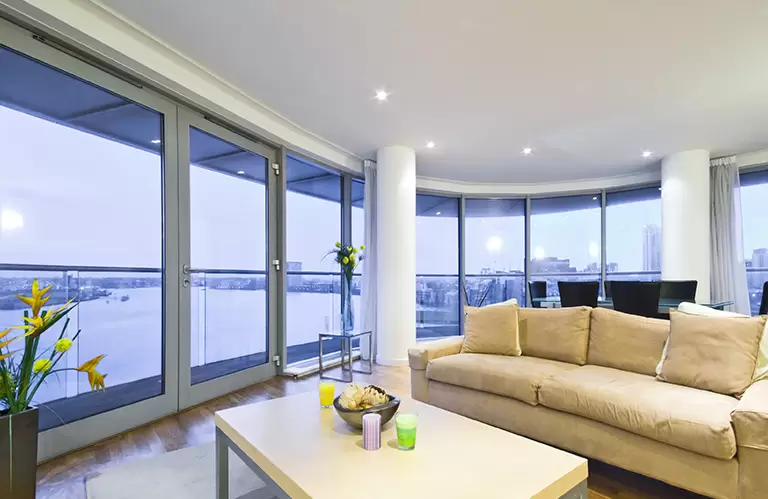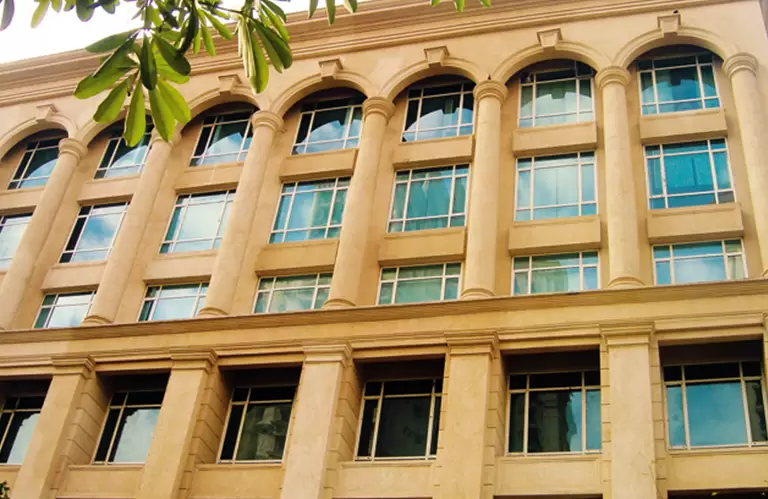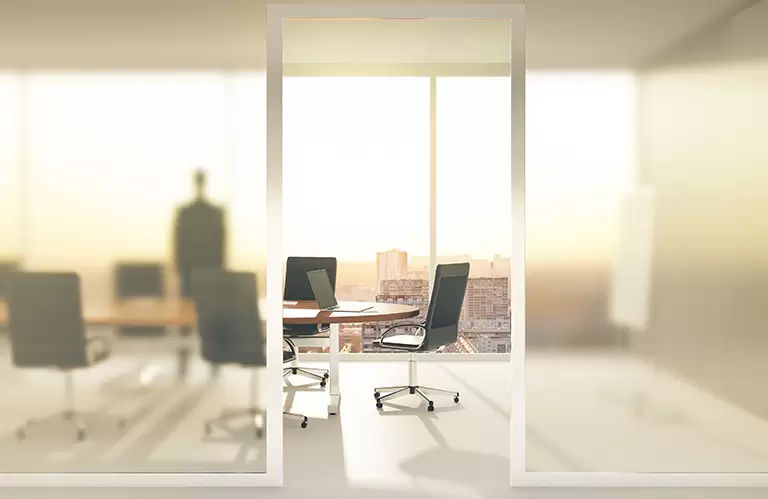Float Glass
Float glass is manufactured by floating the molten glass on a bed of molten metal, typically tin. This method gives the glass product uniform thickness and a very flat surface. Float glass is the primary glass product on which all other value-additions are done to enable glass to do more. This type of glass ensures 100% distortion-free vision.
AIS Clear
Gives a clean and modern look to the exterior façade.Benefits
- Distortion-free
- Clarity of vision
- Sparkling surface
Applications
- Shopfronts
- Partitions
- Doors
- Shelves
- Furniture
- Windows
AIS TINTED
Blocks the sun’s heat, allowing the room to remain cool without compromising on aesthetics.Benefits
- Absorbs 30% to 45% of solar heat.
- Enhances the aesthetic appearance of buildings.
- Protects against glare.
Applications
- Partitions
- Doors
- Shelves
- Furniture
- Windows
Colours available:
- Dark Grey, Green, Bronze,
- Dark Blue, Royal Blue, Cool Green, Aqua Blue
AIS KRYSTAL
AIS Krystal is a frosted glass, which admits light and at the same time obscures the view. It offers quality excellence, owing to its superior glass manufacturing techniques.Benefits
- Its translucent feature ensures privacy and aesthetic appeal.
- It has a distinctive matte finish that enhances the aesthetic appeal of the surroundings.
- Comes in four shades – clear, green, blue and bronze.
Applications
- Translucent partitions
- Writing boards
- Doors for cabinets
- Bathroom windows
- Various interior decorative applications
Available in 4 exciting shades:
- Clear, Green, Blue and Bronze.
Frequently Asked Questions
Made by adding a small amount of metal oxide, green-tinted glass can enhance the look and feel of any
space. Moreover, the green-tinted glass helps by lowering the heat gain, traps the warm or cool air and
prevents it from escaping. This helps in better temperature regulation, so appliances like heaters or air
conditioners don't overwork and increase power consumption. More importantly, Green tinted glass acts as a layer of protection and prevents the UV rays from entering your house so you can enjoy the sunlight during the morning without any concerns.
Frosted glass is most commonly used in bathrooms, doors for cabinets in commercial spaces, writing
boards, and translucent partitions as promoting privacy is one of the primary frosted glass uses. Frosted
glass is the most popular choice for those who prefer more privacy without blocking out the light. Also,
it has a distinctive matte finish that enhances the aesthetic appeal of the surroundings.
The main properties of float glass are transparency and hardness. The float glass is distinguished from
other materials by various characteristics: it is not porous or absorbent, it is an excellent insulator, has
low expansion and thermal conductivity. Float glass is the primary glass product on which all other
value-additions are done to enable glass to do more. This type of glass ensures 100% distortion-free
vision.
The uses of clear glass in modern architecture are plenty as it is mainly used in interior applications,
where clear vision is desired, such as doors, windows, glass partitions, shelves, furniture, balustrades,
stairs, etc. The grade and quality of clear float glass are determined by iron content (measured in PPM –
Parts per Million) in Silica-sand, a critical raw material in glassmaking.
High-rise buildings use heat-strengthened glass to withstand pressure and suction forces from the
strong winds. Popular glass choices include float glass, green-tinted glass, tinted glass, clear glass,
frosted glass, translucent glass; however, experts recommend tinted glass to be an ideal choice for high-
rise buildings because it allows for the retention and insulation of heat.




